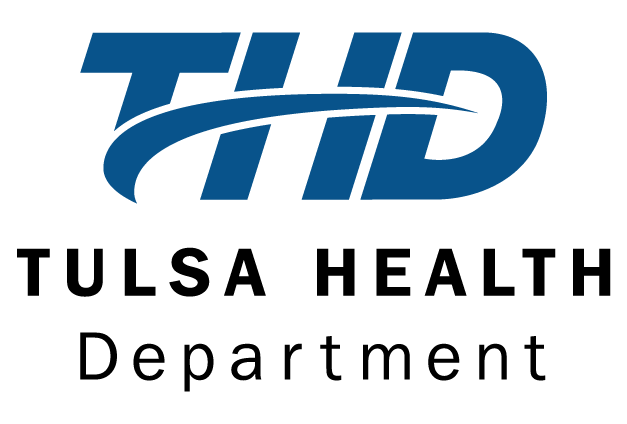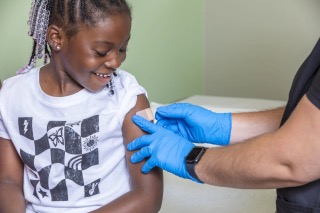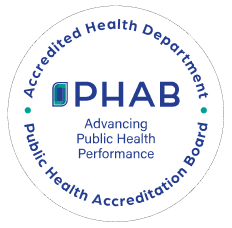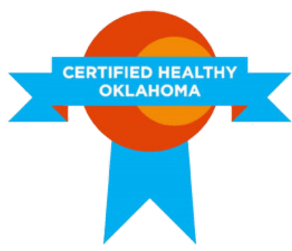TULSA, OK – [September 26, 2018] – The Tulsa Health Department will begin offering seasonal flu vaccinations on October 1.
Health officials remind residents that getting vaccinated against the flu every year is the single best way to prevent the flu. The flu vaccine can keep you from getting the flu, make the illness less severe if you do get it, and keep you from spreading the virus to family and other people.
The flu vaccines will be offered while supplies last to anyone over the age of six months on a walk-in basis Mondays through Thursdays from 8:00 a.m. – 4:00 p.m. and Fridays from 8:00 a.m. – 3:00 p.m. at the following Tulsa Health Department locations:
• James O. Goodwin Health Center | 5051 S. 129 E. Ave., Tulsa, OK
• Central Regional Health Center | 315 S. Utica, Tulsa, OK
• North Regional Health and Wellness Center | 5635 N. Martin Luther King Jr. Blvd., Tulsa OK
The flu vaccine will also be offered at these locations:
• Collinsville Community Health Center | 1201 W. Center, Collinsville, OK
Call (918) 596-8650 for clinic dates and times
• Sand Springs Health Center | 306 E. Broadway, Sand Springs, OK
Call (918) 591-6100 for clinic dates and times
There is no out-of-pocket cost for the influenza vaccine to recipients, while supplies last. Those with insurance are asked to provide card showing coverage.
The 2018-2019 seasonal flu vaccination requires only one shot for most individuals. Children under age nine who have not received two flu immunizations before July 1, 2018 will need a second dose at least four weeks after receiving the first dose.
The vaccine is recommended for everyone over six months of age. Persons at high risk of serious complications from flu are strongly recommended to get the flu vaccine, including children younger than 5, older people, pregnant women and those with asthma, diabetes, or other chronic conditions. Parents and family members of babies less than 6 months of age and people who live with or care for anyone at high risk for complications from the flu, including health care workers, should also get the vaccine.
“Last year’s flu season numbers were dangerously high, we hope to spread the message about the serious importance of getting vaccinated to protect you and your loved ones,” said Dr. Bruce Dart, executive director. “Our goal is to provide access to services to keep Tulsa County as healthy and well as possible during these months of heightened flu activity.”
According to the Oklahoma State Department of Health report, the 2017-2018 flu season resulted in 291 deaths and 4,810 hospitalizations to Oklahomans. Influenza, commonly referred to as the flu, is a contagious disease that spreads around the United States every year, usually between October and May. Flu is caused by influenza viruses, and is spread mainly by coughing, sneezing, and close contact. Anyone can get flu. Flu strikes suddenly and can last several days. Symptoms vary by age, but can include: fever/chills, sore throat, muscle aches, fatigue, cough, headache and runny or stuffy nose. Pneumonia, bronchitis, sinus and ear infections are examples of complications from flu. If you have a medical condition, such as heart or lung disease, flu can make it worse. Each year thousands of people in the United States die from flu, and many more are hospitalized.
For more information please visit www.tulsa-health.org.
# # #
About Tulsa Health Department
Since its establishment in 1950, the Tulsa Health Department serves as the primary public health agency to more than 600,000 Tulsa County residents, including 13 municipalities and four unincorporated areas. The agency is one of two autonomous local health departments in Oklahoma, with statutory public health jurisdiction throughout Tulsa County and the City of Tulsa. THD’s mission is to improve the health and well-being of all Tulsa County residents, in order to make Tulsa County the healthiest county in the country. THD was among the first health departments in the U.S. to receive national accreditation through the Public Health Accreditation Board. For more information, please visit www.tulsa-health.org.






